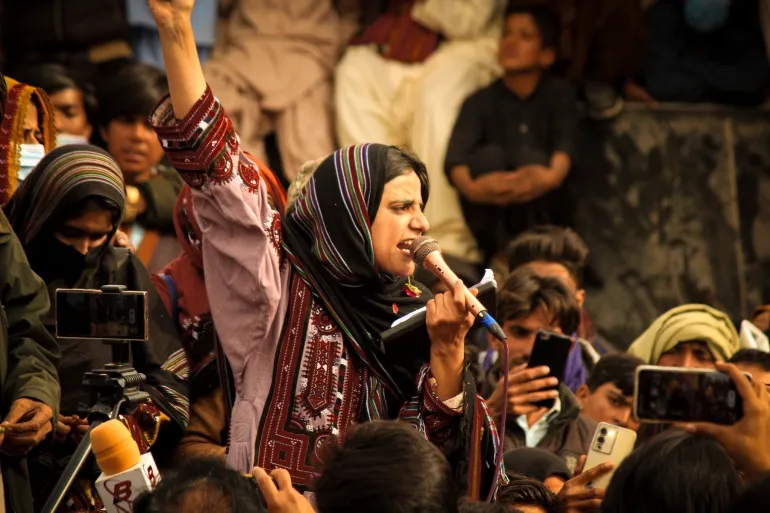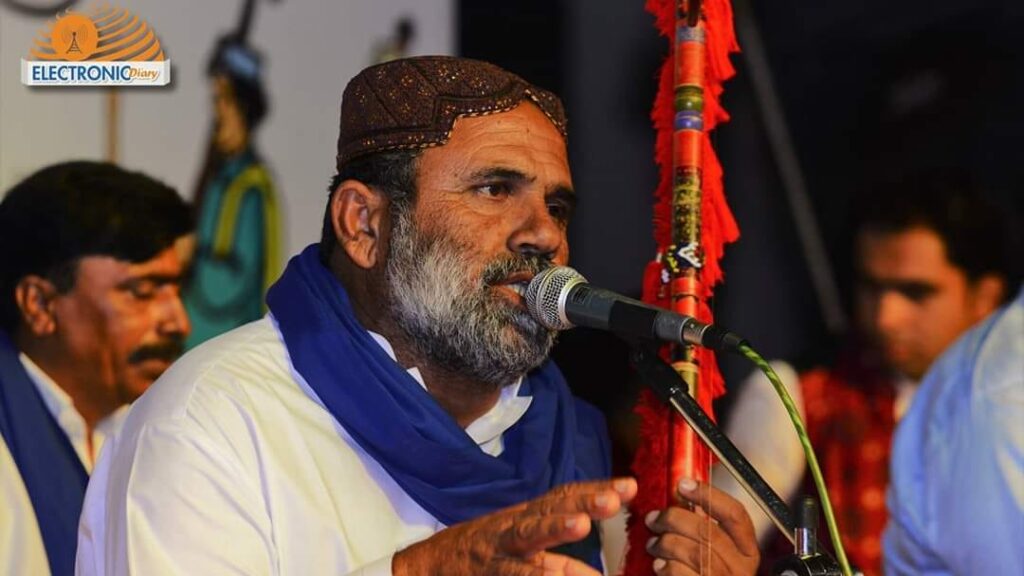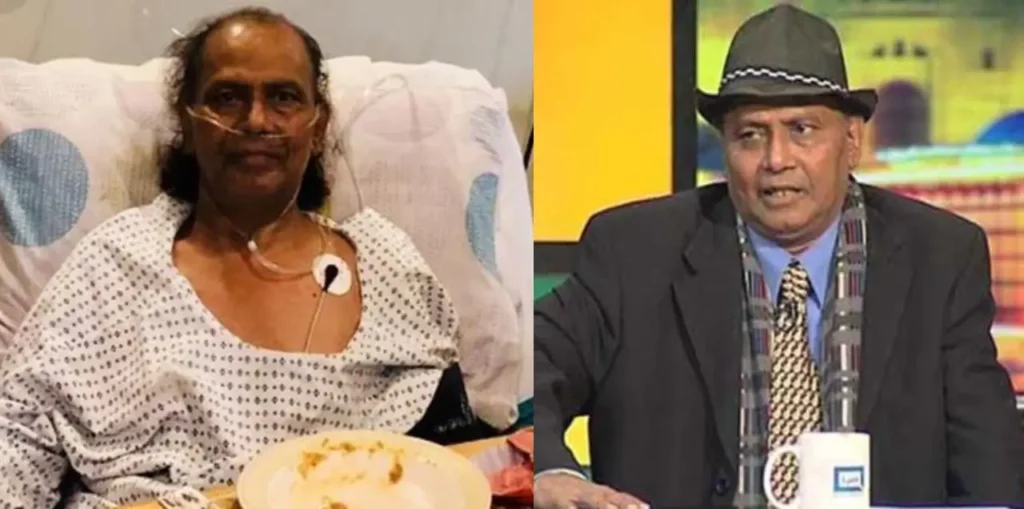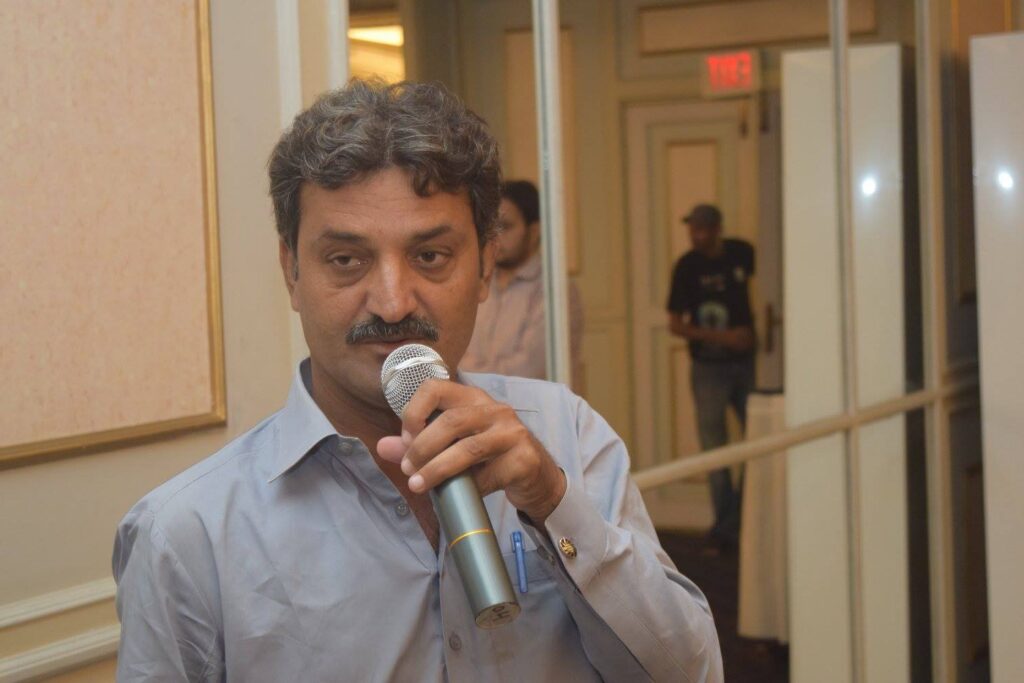In a stark display of state oppression, the Baloch women’s long march, which commenced from Turbat on December 6 with the aim of raising awareness about enforced disappearances and extrajudicial killings in Balochistan, faced a grim turn of events upon reaching Islamabad. The marchers, the majority of them are women relatives of those who are missing or extra-judicially killed advocating for the rights of Baloch youth who have disappeared or faced extrajudicial killings, encountered police brutality on the outskirts of the capital when they tried to reach the National Press Club, where a group of Baloch families has been staging a protest.
According to the BBC Urdu website Islamabad Police arrested 226 women marchers including their leader Ms. Mahrang Baloch on Wednesday night.
At the forefront of the Baloch women’s rally is Ms. Mahrang Baloch, a passionate Baloch rights activist. However, the rally has not been without its share of controversy, particularly drawing criticism from certain segments of Sindhi and Siraiki nationalists. The dissenting voices within the Sindhi nationalist community arose due to the slogans raised during the rally, which called for the inclusion of certain parts of Sindh and Southern Punjab into Balochistan. This demand, while partial to the Baloch women’s cause, triggered objections from Sindhi nationalists who perceived it as encroaching on the territorial integrity of Sindh. Social media posts were criticizing the marchers for raising controversial slogans which has marred their noble cause.
In the face of social media backlash and dissenting voices, the Baloch women’s rally, led by the prominent Baloch rights activist Ms Mahrang Baloch, encountered a surprisingly warm reception in key towns of Southern Punjab, most notably in Dera Ghazi Khan and Rajanpur. This intriguing contrast in responses illuminates the intricate dynamics and diverse perspectives that exist within the region. While criticism from certain quarters sheds light on the sensitivities surrounding cross-regional demands, the rally’s positive reception in Southern Punjab hints at a local resonance with the broader cause championed by Ms Mahrang Baloch and her fellow activists.
This dynamic interplay of opinions and reactions adds a layer of complexity to the ongoing discourse surrounding the Baloch women’s rally, exposing the nuanced tapestry of cultural and regional sentiments across Pakistan. It signifies that while there might be discord in some quarters, there exists a degree of local understanding and support for the overarching goals of the rally within specific communities.
Before embarking on their journey for a Long March to Islamabad, the participants strategically initiated a dharna (sit-in) in the Turbat district from November 23 to December 6. This deliberate pause allowed the rally participants to lay the groundwork for their demands and garner attention to the pressing issues they sought to address. Notably, the families of missing persons, with a particular focus on the four individuals allegedly killed in an encounter with the Counter Terrorism Department police in Turbat, are fervently demanding a judicial inquiry into the circumstances surrounding these deaths.
Relatives of the deceased assert that these individuals had been forcibly disappeared earlier, only to meet an unfortunate fate in a staged encounter. This grave accusation highlights the broader concern of enforced disappearances and extrajudicial killings, prompting a call for accountability and justice within the Baloch community. The demand for a judicial inquiry underscores the gravity of the situation, as families seek transparency and an impartial investigation into the alleged abuses committed by law enforcement agencies.
As the Baloch women’s rally unfolds, these complex narratives and demands weave a compelling tale of activism, regional dynamics, and the persistent struggle for justice and human rights. The rally not only serves as a platform for advocacy but also as a mirror reflecting the intricate web of challenges faced by marginalized communities within Pakistan. The nuanced interplay between regional sentiments, dissent, and local support underscores the multifaceted nature of the issues at hand, offering a glimpse into the broader struggles for justice, accountability, and recognition of the rights of the Baloch people.
Media’s Blackout of Long March
Despite a media blackout of Long March within the country, the march garnered international attention, with local communities welcoming the marchers at various major cities along their route. Initially, the police blocked key routes, including Jinnah Avenue in Islamabad and the path leading to the National Press Club, creating extensive traffic jams on Srinagar Highway, a major thoroughfare in the federal capital.
The organizers of the long march, along with the Baloch Yakjehti Committee, allege that the police attempted to obstruct the march’s route in Khuzdar, Kalat, Mastung, Quetta, and Dera Ghazi Khan. Mahrang Baloch, the leader of the march, considers the endeavour a success even before reaching Islamabad, citing the widespread support received from the people of Balochistan. She emphasised the need to halt extrajudicial killings, secure the release of missing persons, and underscored that the long march is not only a movement but also an initiative to document cases of missing persons.

Mahrang Baloch asserts that the government’s interference with their peaceful long march amounts to state oppression. Balochistan Police have registered a case against the SHO CTD and other officials for the murder of Balach Baloch and three others, following a complaint from Balach’s father, Mola Bakhsh. The case includes charges of murder and attempted murder.
In an earlier statement, the Counter Terrorism Department claimed that Balach Baloch was associated with the Balochistan Liberation Army (BLA). According to the CTD, Balach confessed during interrogation to being involved in targeted killings and planting improvised explosive devices (IEDs). The CTD contends that Balach was transporting explosive materials to his accomplices preparing a motorcycle IED for a terrorist attack in Turbat City. The statement alleges that upon reaching the location, the terrorists initiated gunfire, resulting in Balach’s death.
As the events surrounding the Baloch long march unfold, the clash between the marchers and the authorities underscores the persistent challenges in addressing human rights violations, enforced disappearances, and extrajudicial killings in Balochistan. The demands for justice and accountability resonate not only within the borders of Pakistan but also draw international attention to the plight of those affected by such tragic circumstances.
Photo Courtesy: BBC Urdu




